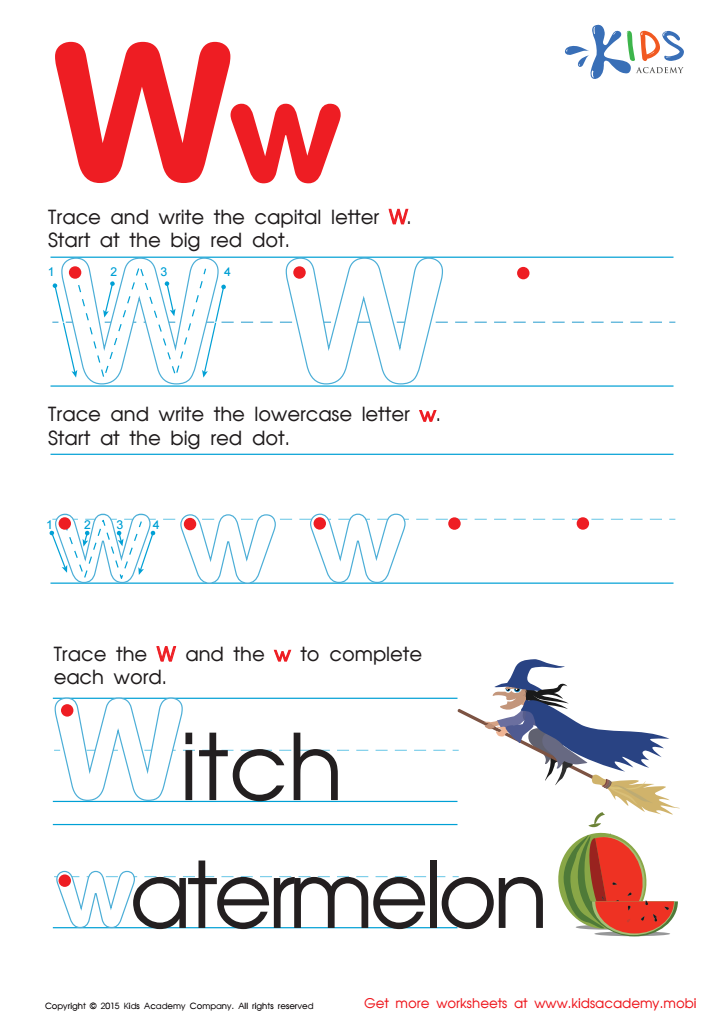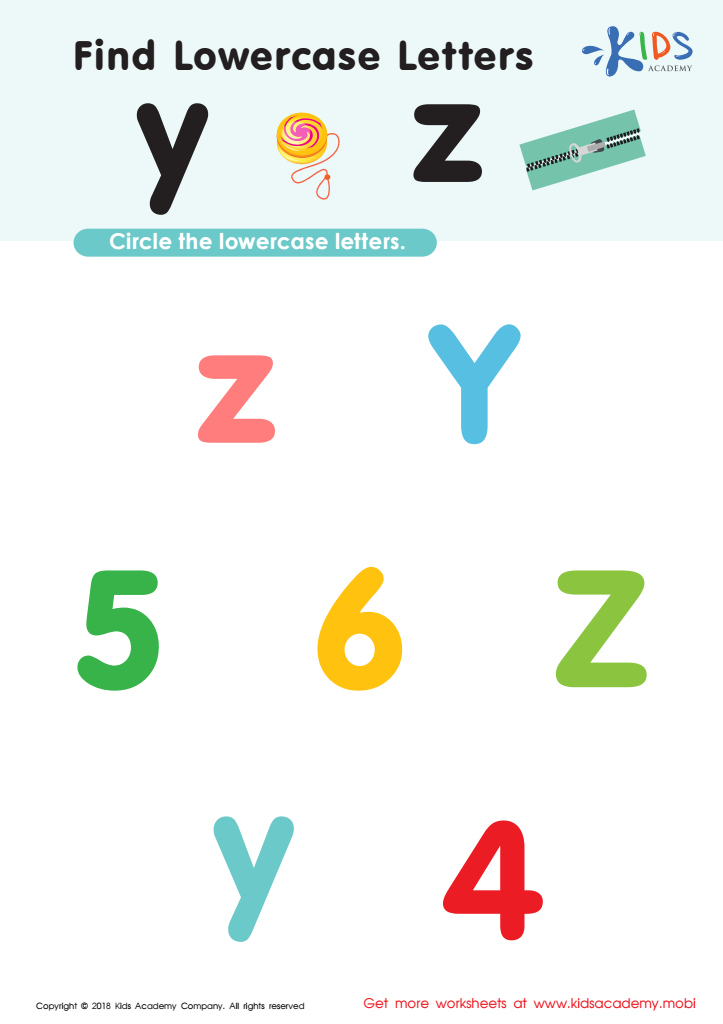Alphabetical understanding Worksheets for Ages 4-5
3 filtered results
-
From - To
Discover our Alphabetical Understanding Worksheets tailored for children ages 4 to 5 at Kids Academy! These engaging, educational worksheets are designed to enhance your child's familiarity with the alphabet. Each activity encourages letter recognition, sequencing, and phonics skills in a fun and interactive way. Perfect for early learners, our resources help build a strong foundation for reading and writing through colorful illustrations and hands-on exercises. Unlock your child's potential with our expertly crafted worksheets that make learning both enjoyable and effective. Visit Kids Academy to start your child's exciting journey with the alphabet!


Letter E Coloring Sheet


Letter W Tracing Page


Find Lowercase Letters y z Worksheet
Alphabetical understanding is crucial for children aged 4-5 as it lays the foundation for literacy and overall academic success. At this developmental stage, children are highly receptive to learning new concepts, and understanding the alphabet is key to unlocking the world of reading and writing.
Firstly, knowing the alphabet helps children recognize and differentiate letters, which is essential for decoding words. This ability enables them to start reading simple words and sentences, fostering confidence and a love for reading. Early exposure to the alphabet also supports vocabulary development as children begin to associate letters with corresponding sounds, pictures, and objects.
Secondly, alphabetical knowledge enhances cognitive skills such as memory and pattern recognition. Through activities like singing the alphabet song, arranging letter blocks, or playing matching games, children develop their ability to recall and organize information sequentially.
Furthermore, fostering alphabetical understanding promotes fine motor skills. Writing letters involves hand-eye coordination and muscle control, essential for tasks like drawing, cutting, and eventually, writing.
Lastly, an early grasp of the alphabet creates a strong foundation for formal schooling, easing the transition into kindergarten. It equips children with the confidence needed to participate actively in classroom activities, setting the stage for a successful educational journey. Therefore, parents and teachers should prioritize and nurture alphabetical understanding during these formative years.

 Assign to the classroom
Assign to the classroom











